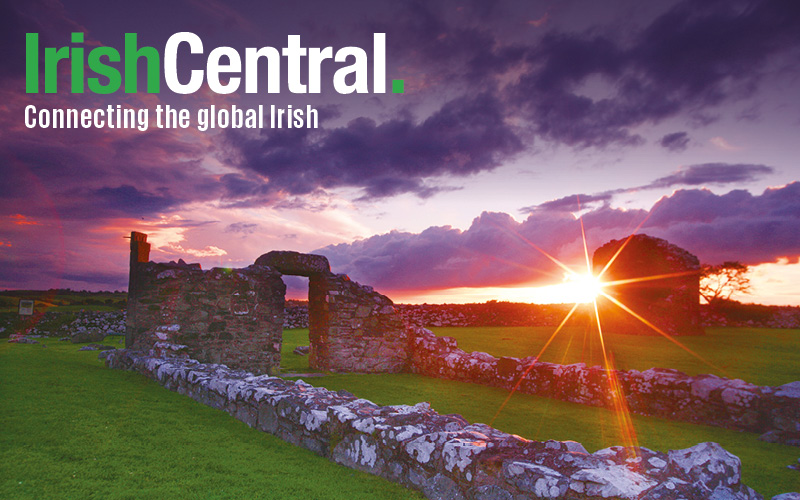To fill you in briefly, I’m a summer intern here at IrishCentral, which is based in New York City. I have no Irish heritage, but after long nights at my college newspaper, a study abroad term in Dublin last year, and a persistent love for Irish culture as I perceive it, somehow I ended up at this desk.
I could write something about how I better understand “Ireland” the idea, from my summer working at IrishCentral, but that’s not true. I better understand some specific issues and structures within Ireland - say, Irish politics. I am better informed as to what’s going on in Ireland that I was even when I was living in Dublin. As another journalist (not at IrishCentral) recently remarked to me, “I get paid to know what’s going on."
What I don’t get paid to do is to live in Ireland. That, of course, would be a sweet - and unrealistic - deal. But writing about Irish-related news and working in an office full of Irish accents does not an Irishwoman make. Not that I particularly expected it to. But especially now, I take my knowledge of Ireland with a grain of salt - I can know as many facts as possible, but regardless, I think an intuitive understanding of a country can only come from living there for longer than I did last year.
My interest in Ireland does have an intellectual component, which perhaps can be answered from afar. But the intuitive, emotional component cannot without returning to Ireland.
I wonder about my own ability to live abroad for a longer period than I did last year. Most of my coworkers at the IrishCentral office are living an Atlantic away from the country of their birth. As I listen to them plan visits home for Christmas - visits that are logistically and financially burdensome, although absolutely worth it - I wonder if I could manage that, year after year.
Logistically, I probably could. It takes hours longer to travel from my home in California to my small college town in New Hampshire than it does to travel from New York to Dublin. I’ve been doing flights like this, transporting my life and possessions between coasts, every few months for the past three years.
Though California and New England, or New York, shouldn’t seem all that different, the divisions that persist in the United States continue to surprise me. I’m descended from a long line of New England-based former Puritans, and in my biased opinion of my family culture, the stereotype of Puritanism as the “lingering fear that someone somewhere might be having fun” is all too accurate. I also enjoy joking with my college friends that back in my home in Northern California, our lives consist of biking between different locally-sourced vegan restaurants, farmers’ markets, and artisanal taco stands, passing the Facebook and Google headquarters on the way. (But actually, it’s ‘hella’ like that!) It makes us feel special to pretend that even the northern half of our state would be, in Europe, a country unto itself - strictly in terms of geographic area.
In contrast, the Republic of Ireland is actually a country unto itself - and a hard-won one! Perhaps what I envy is what I see as the sense of national and cultural identity in the Republic of Ireland.
You can lampoon me as unpatriotic for not seeing the same sense of unified identity in the United States - I think it’s because I grew up in California. I love my state, but it’s a newly-developed one. Most of our architecture was erected within the last century. Most of my friends’ parents, and my own, were raised elsewhere, and moved to the Bay Area as adults. My state, to me, doesn’t have a shared identity, at least not yet. When I think of the differences between my state and the forty-nine others, the United States seems even less ‘united.’
Of course, Ireland’s unity is a debated topic as well.
Maybe it’s just hard for me to see the United States as having a unified culture because I’m looking from within it. I focus on the divisions in political parties, in state cultures, the West versus East versus Midwest versus South. Last night I overheard half (symbolically enough) of my roommate’s heated phone conversation about the racial problems and divisions that persist in the United States, addressed in simultaneously the most academic and emotional terms -- the far-away mixed with the all-too-close.
It’s as hard for me to understand what it means to be American, which I am, as it is for me to understand what it means to be Irish, which I am not. They’re difficult for different reasons: understanding American culture because I’m too close to it, grew up with it, and understanding Irish culture because I’m too far from it, so I’m inevitably absorbing something that’s oversimplified and stereotyped.
I know I loved the stereotype I developed from afar, as a child, and loved the more nuanced picture I developed living in Dublin last year. I loved adding more information to that framework of understanding through working in Irish news this summer. But I suppose what I’ve learned through my search to understand Ireland is that it’s difficult to fully understand any culture - even my own.




Comments